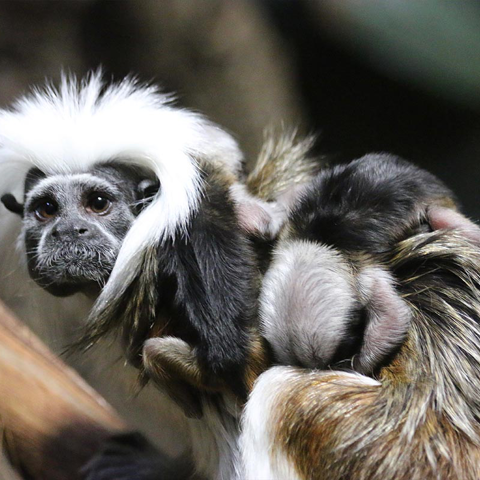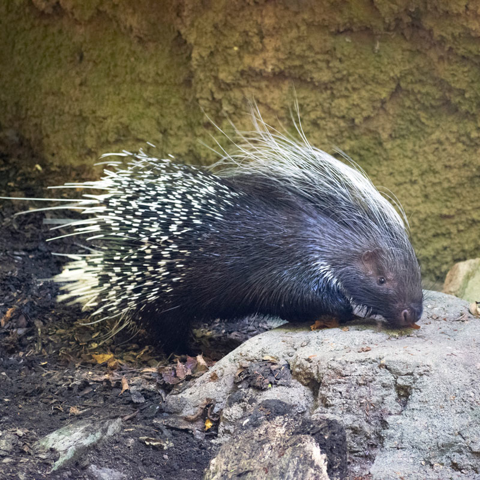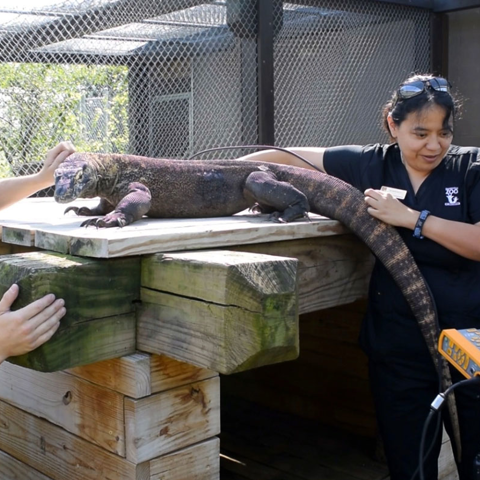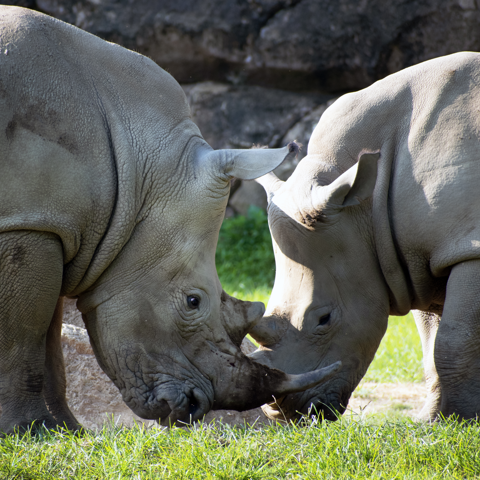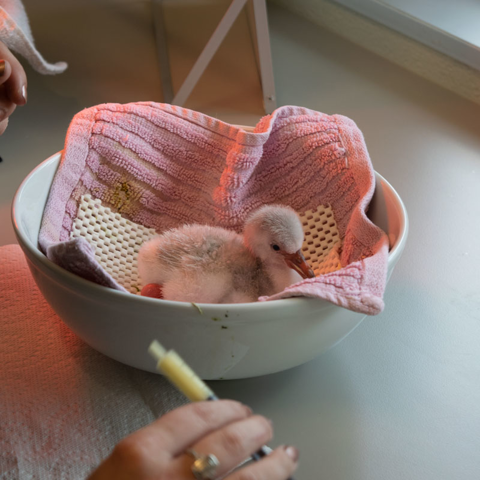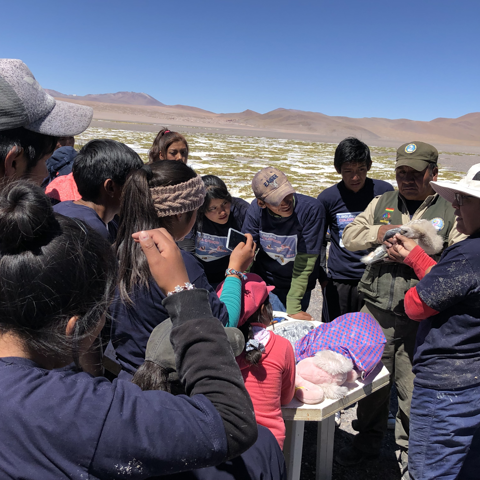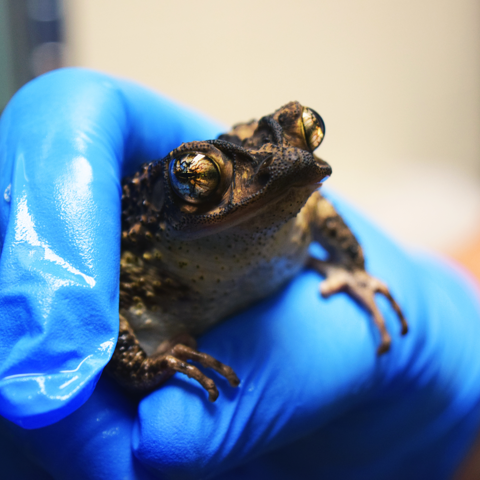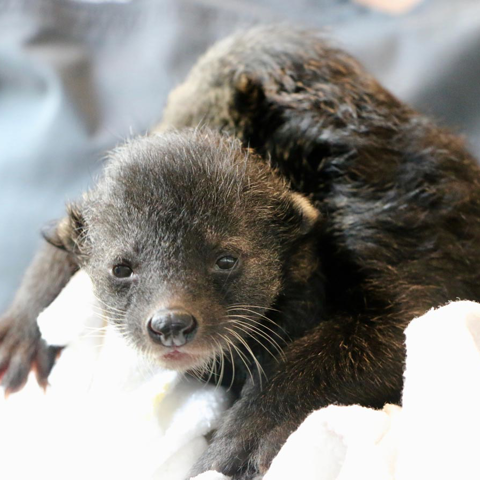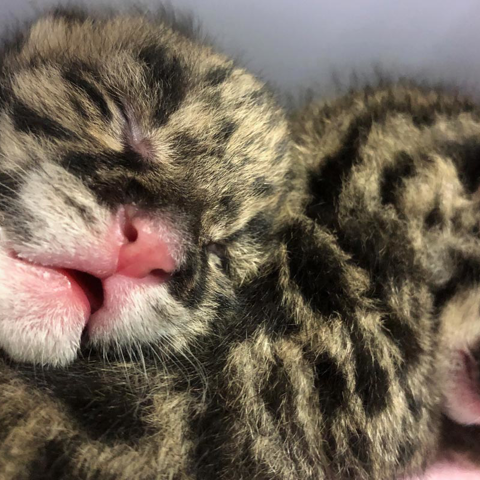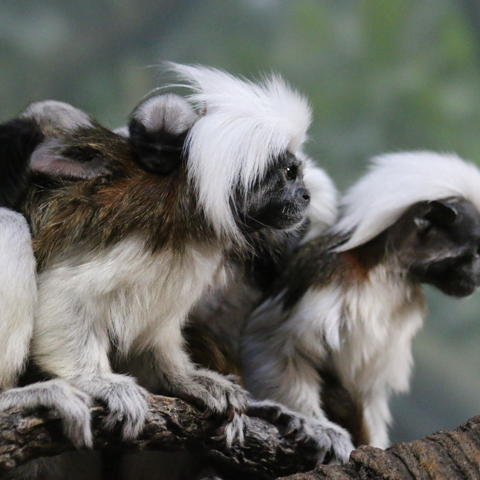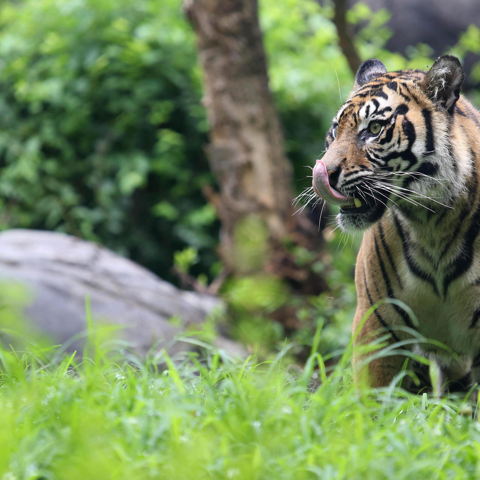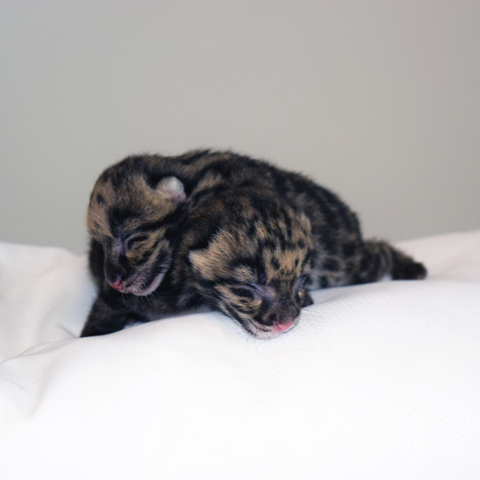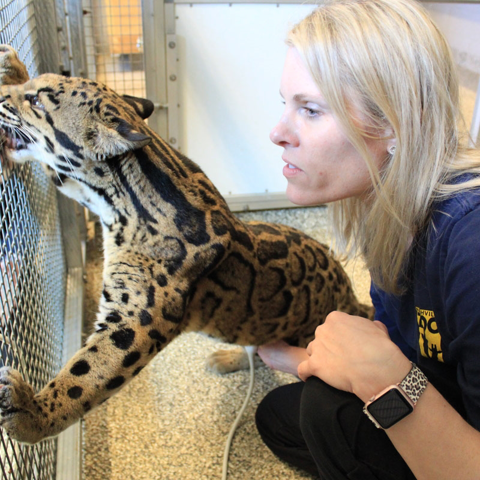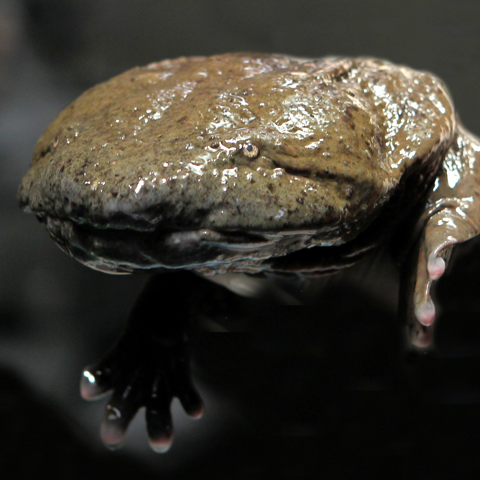
Nashville Zoo
Our Latest Posts
Category: Conservation
Wednesday, May 14, 2025
Releasing Hellbenders into the Wild 2025
Last week, Nashville Zoo’s ectotherm team in partnership with Tennessee Wildlife Resources Agency and Tennessee State University, traveled to a waterway in Middle Tennessee to release a total of 17 eastern hellbender salamanders back into the wild. These hellbenders had been raised at the Zoo as part of a headstart program. Since the start of this conservation initiative, the Zoo has released over 120 hellbenders into local Tennessee streams to help bolster the popu...
Read More
at Wednesday, May 14, 2025
Thursday, April 24, 2025
Nashville Zoo Awarded AZA Accreditation Once Again
We’re proud to announce that Nashville Zoo has once again been granted accreditation by the Association of Zoos and Aquariums (AZA). We are honored to remain among the top zoos and aquariums in the country committed to the highest standards in animal care and operations.
"Congratulations to the leadership and staff at Nashville Zoo for attaining the global ‘gold standard’ in zoological and aquarium accreditation,” said Dan Ashe, president, and CEO of the Association o...
Read More
at Thursday, April 24, 2025
Friday, April 4, 2025
Travel With Nashville Zoo
Join Nashville Zoo on two WILD trips
Join us for an online travel night presentation on Tuesday, May 27, 2025 at 6:00 pm CT. Learn about our upcoming trips to Tanzania and the Galapagos Islands!
Zoom Link: https://us06web.zoom.us/j/87003977394
Meeting ID: 870 0397 7394
Embark on two unforgettable adventures hosted by David Oehler, Nashville Zoo’s Vice President and a dedicated biologist focused on wildlife conservation and research. David’s appearances in the Animal Planet series...
Read More
at Friday, April 4, 2025
Friday, February 14, 2025
Nashville Zoo Assists in Giraffe Translocation in Botswana
Nashville Zoo continues to support species worldwide and is involved in various international conservation efforts. Our Hoofstock department participates in African conservation work by joining Save Giraffes Now on various conservation projects. Read the updates below.
Save Giraffes Now Partnership
In early 2024, hoofstock keeper Jenna Wolczyk traveled to Kenya to work with local communities and wild giraffe populations. During that visit, Jenna spent the bulk of ...
Read More
at Friday, February 14, 2025
Monday, December 30, 2024
Our 2024 Highlight Reel
As 2024 ends, we are excited to share our key moments at Nashville Zoo. Our continued commitment to global and local conservation is facilitated through research, habitat protection, breeding programs, education initiatives and more. Our work would not have been possible without the community's support!
This year, Nashville Zoo expects to invest $950,000 in support for conservation efforts, including direct contributions, in-house grant funding, research, education and sustainability initiati...
Read More
at Monday, December 30, 2024
Tuesday, October 1, 2024
Year of the Dragon: Nashville Zoo Welcomes Komodo Hatchlings
We're proud to announce our first-ever successful hatching of two Komodo dragons. The new arrivals were born on September 20 and September 23 and weigh about the same as a stick of butter, coming in at ~100 grams. The hatchlings are healthy and are being raised behind the scenes in the Zoo’s Komodo Dragon facility.
About Komodos
Komodo dragons are known for being the largest and heaviest lizard on earth, reaching up to 10 feet in length and weighing more than 300 pounds. They are domin...
Read More
at Tuesday, October 1, 2024
Wednesday, August 14, 2024
Nashville’s Purple Martin Phenomenon
Our Avian department continues to participate in conservation work in Middle Tennessee by monitoring and supporting the Urban Bird Treaty and Purple Martin roost. Read the updates on this project below.
You may have noticed flocks of birds flying in a unique pattern in the evenings. Those birds are North America’s largest swallows called Purple Martins. While European Starlings flock and perform a similar murmuration pattern, they are only visible in the fall and winter months once the...
Read More
at Wednesday, August 14, 2024
Loggerhead Shrike Conservation
Our Avian department continues to participate in conservation work in Middle Tennessee by monitoring local loggerhead shrike populations. Read the updates on this project below.
The Zoo collaborates closely with Southeastern Avian Research and the Loggerhead Shrike Working Group to identify research, conservation, and management priorities for these birds.
Since 2013, Nashville Zoo staff and local researchers have surveyed and monitored loggerhead shrikes in Middle Tennessee. Each ba...
Read More
Local Crayfish Conservation 2024
Our Aquatics team continues to participate in conservation work in our Middle Tennessee neighborhood by monitoring local Nashville crayfish populations. Read the updates on this project below.
Our Aquatics team received a grant from U.S. Fish and Wildlife Service in 2011 to develop protocols and implement long-term population monitoring for the federally endangered Nashville crayfish. The Nashville crayfish (Faxonius shoupi) is the only animal whose entire range is located only ...
Read More
Wednesday, May 22, 2024
Releasing Hellbenders into the Wild
Earlier this week, Nashville Zoo’s ectotherm team in partnership with Tennessee Wildlife Resources Agency and Tennessee State University, traveled to a waterway in Middle Tennessee to successfully release a total of 27 eastern hellbender salamanders back into the wild. These hellbenders had been raised since 2018 at the Zoo as part of a headstart program. Since the start of this conservation initiative, the Zoo has released over 100 hellbenders into local Tennessee strea...
Read More
at Wednesday, May 22, 2024
Komodo Dragon Conservation Work
Nashville Zoo is excited to continue supporting species around the world and work with local organizations to save endangered wildlife. In late February into early March of this year, our Assistant Curator of Ectotherm Nick Hanna traveled to Komodo National Park to help with hands-on Komodo dragon conservation work.
Komodo Island | Nick and KSP team weighing a wild Komodo dragon
Komodo Survival Program
Nick spent five days on Komodo Island, part of Komodo National Park in In...
Read More
Thursday, March 28, 2024
Giraffe Conservation in Kenya
Nashville Zoo continues to support species worldwide and take advantage of avenues for international conservation. Earlier this year, hoofstock keeper Jenna Wolczyk traveled to Kenya to work with local communities and wild giraffe populations.
Reticulated giraffe in the savannah near Nanyuki, Kenya
Save Giraffes Now
Jenna teamed up with Save Giraffes Now (SGN), an organization committed to saving giraffes through hands-on conservation projects throughout the African savannah inc...
Read More
Wild Works Impact: Over $800,000 donated to conservation organizations in 2023
We’re proud to announce we’ve financially committed over $800,000 to conservation and wildlife organizations in 2023 via our Wild Works conservation program. All the selected organizations help further our mission and emphasize the importance of conserving species and their habitats both locally and around the globe. Below is a brief description and link to some of the organizations.
Rainforest Awareness Rescue Education Center (RAREC) - located outside the small town of Iq...
Read More
Friday, January 12, 2024
Meet our Tiger Cubs!
We're excited to announce the names selected for the three critically endangered Sumatran tiger cubs. The public voting contest kicked off on December 15 and closed yesterday, January 11. People voted with a donation to tiger conservation and the Zoo matched dollar for dollar. We raised just under $8,000 for the Tiger Conservation Fund, an organization helping to save native habitats, curb poaching, eliminate the trade of tiger parts and reduce human/tiger conflicts.
🐯 The winning female na...
Read More
Wednesday, December 27, 2023
Our 2023 Highlight Reel
As 2023 concludes, we're excited to look back at what your support made possible. This year, we financially committed to donating more than $785,000 to support conservation efforts, furthering our mission to save and protect species. Our commitment to global and local conservation is made possible through research, habitat protection, breeding programs, education initiatives and more.
This year has been full of BIG successes including opening a new habitat, celebrating historic animal births,...
Read More
at Wednesday, December 27, 2023
Monday, December 11, 2023
Vote to Name our Tiger Cubs! 🐯
Our three Sumatran tiger cubs, born on October 20, are ready to be named! The three cubs will be raised by their mother here at the Zoo until they are mature at which time they will move to other zoos to meet their future mates. Help us by voting for your favorite names from the choices below. Your vote comes with a financial commitment of your choosing and every dollar raised will go to the Tiger Conservation Campaign, a non-profit working to save native habitats, curb poaching, elimin...
Read More
Wednesday, July 5, 2023
Local Crayfish Conservation
Our Aquatics team continues to participate in conservation work right here in our Middle Tennessee neighborhood by monitoring local Nashville crayfish populations. Read the updates on this project below.
Our Aquatics team here at the Zoo received a grant from U.S. Fish and Wildlife Service in 2011 to develop protocols and implement long-term population monitoring for the federally endangered Nashville crayfish. The Nashville crayfish (Faxonius shoupi) is the only animal whose entir...
Read More
Wednesday, May 24, 2023
Releasing Hellbender Salamanders Back into the Wild
Last week, Nashville Zoo’s ectotherm team in partnership with Tennessee Wildlife Resources Agency and Tennessee State University, waded into the waters of Middle Tennessee to successfully release a total of 24 eastern hellbender salamanders back into the wild. These hellbenders had been raised since 2018 at the Zoo as part of a headstart program, after being collected as eggs from streams in Middle Tennessee.
Hellbender conservation team in waterway preparing to release ...
Read More
Wednesday, May 10, 2023
What is a Motus Tower?
Check out the bird's flight paths that got picked up by our Motus tower!
Next time you are at the Zoo’s Veterinary Center, look up and spot the Motus tower. This tower is a part of the world’s largest collaborative automated radio telemetry project. Motus helps track the migration of smaller birds, bats and insects that are too small for satellites. Motus Wildlife Tracking System was created to help with research and education on the ecology and conservation of...
Read More
Tuesday, May 2, 2023
Researching Native Bluebird Populations
Since 2021, Nashville Zoo’s bird team has been monitoring bluebird populations right here in our backyard via nest boxes. In an effort to participate in a hands-on approach, bird keeper Rachael Payton received her federal and state bird banding permits in fall 2022 which allows her to band birds on Zoo property.
Bird banding is a strategy where researchers attach identification bands on the leg of females or males incubating eggs or feeding chicks, and then the chicks once they a...
Read More
Wednesday, December 28, 2022
Our 2022 Highlight Reel
As 2022 and our 25th year at Grassmere come to a close, we are so excited to look back at all that YOU made possible this year. Between breeding firsts, helping endangered animals around the globe, and being surprised by the cutest little nugget - this year has been full of success!
Celebrating 25 Years at Grassmere
We’ve experienced tremendous growth since opening our doors in 1997. We are proud to now be one of the top attractions in the state, annually welcoming over...
Read More
Tuesday, December 6, 2022
Loggerhead Shrike Working Group Meeting
Nashville Zoo continues their work in loggerhead shrike conservation by hosting the Loggerhead Shrike Working Group this November.
Loggerhead Shrike
The loggerhead shrike (Lanius Iudovicianus) is a carnivorous, grassland songbird and is often referred to as “butcher birds” because they capture prey with their sharply hooked beaks feeding on large insects, rodents and even smaller birds. There are two species of shrike found primarily in the Southeastern region of North Amer...
Read More
Tuesday, October 4, 2022
Working with Cheetahs in Somaliland
Nashville Zoo's international conservation efforts were highlighted this summer as carnivore keeper Megan Woodall spent a month at the Cheetah Conservation Fund (CCF) in Somaliland.
Megan’s Trip
Megan arrived in Somaliland in mid-July and spent the majority of her time working in one of the three safe houses at the Cheetah Conservation Fund facility. The safe houses oversee the care and rehabilitation of cheetah cubs that are taken from the illegal pet trade. Megan helpe...
Read More
Your Choices Matter: Palm Oil
Palm oil is the most widely produced edible vegetable oil in the world and is an ingredient in nearly half of all consumer products. With so much demand, many companies are using unsustainable practices to produce the oil, which in turn is wiping out thousands of animal species.
The Palm Oil Problem
Palm oil is obtained from the fruit of the African oil palm tree, which originated in West Africa, but can flourish wherever heat and rainfall are abundant. Ninety percent of palm oil is now pro...
Read More
Wednesday, July 6, 2022
Two Clouded Leopards Born at Nashville Zoo
Nashville Zoo is thrilled to announce the birth of a male and female clouded leopard on June 30!
The cubs weighed in at about half a pound and measured around 4 inches in length at birth which is much larger than the average cub. Nashville Zoo now has 16 clouded leopards in their care. In total, Nashville Zoo has celebrated the birth of 42 clouded leopards since 2009. These are the first cubs to be raised at the Zoo since 2019.
This birth is significant because the parents (Jewels an...
Read More
Tuesday, June 14, 2022
Eastern Box Turtle Conservation Project
Nashville Zoo’s herpetology team is in the second year of a conservation project that monitors and tracks Eastern box turtles right here on Zoo grounds.
Why are Eastern box turtle populations declining?
Eastern box turtles (Terrapene carolina) are found in grasslands, marshes, woodlands and forest edges often near streams and ponds throughout North America. These turtles are typically common and widespread but have recently been experiencing population decline due to ...
Read More
Friday, December 31, 2021
Conservation Highlights in 2021
Nashville Zoo is celebrating the new year with incredible conservation achievements. From breeding successes to headstart programs – we had a BIG year!
We actively participate in 50+ Species Survival Plan® Programs - for animals as small as Puerto Rican crested toads to as large as the Sumatran tiger! Here are a few highlights from 2021.
Species Survival Plan and Global Species Management Plans
Giant Anteater
We welcomed a male giant anteater pup, Esteban, on...
Read More
Wednesday, September 8, 2021
Releasing Alligator Snapping Turtles
On August 26, 2021, a team from Nashville Zoo, Tennessee Wildlife Resources Agency (TWRA), and the Cumberland River Aquatic Center successfully released 30 alligator snapping turtles into the waters near Wolf River in West Tennessee.
The Release
16 of the 30 alligator snapping turtles released were from Nashville Zoo’s headstart program. These turtles weighed ranging from just under a kilogram to two and a half kilograms prior to release. Each turtle was given a unique individual...
Read More
Udderly Amazing Heritage Breeds
Did you know that certain species of cattle are endangered? Many people don’t think of cattle as being endangered, but some even face critical endangerment just like the Sumatran tiger or Mexican spider monkey. Here at Nashville Zoo, the two devon steers at the Grassmere Historic Farm are considered critically endangered due to modern farming techniques and selective cattle breeding. This type of cattle is, therefore, categorized as a heritage breed.
What are heritage breeds?
Heritage ...
Read More
Friday, July 16, 2021
Releasing Hellbenders
This June and July, Nashville Zoo team members waded into the waters of Middle Tennessee to successfully release a total of 29 eastern hellbenders back into the wild. These hellbenders had been raised at the Zoo for the past six years as part of a headstart program, after being collected as eggs from streams in Middle Tennessee.
The Need for the Headstart Program
This hellbender headstart program was started because researchers had observed a decline in juvenile animals in the wild an...
Read More
Tuesday, June 1, 2021
Coral Conservation at the Zoo
Help celebrate World Ocean Day by visiting Nashville Zoo’s Florida Reef Tract Coral Conservation Lab to learn more about how you can save coral!
World Ocean Day began as a way to highlight the impact of human activities on the ocean, such as pollution, habitat loss, and overfishing. The ocean covers over 70% of the planet and produces at least 50% of Earth’s oxygen. Although the ocean is one of our most crucial resources, human actions have resulted in the depletion of ...
Read More
Thursday, May 20, 2021
Endangered Species Day
In honor of Endangered Species Day, we're taking a look at some of the most endangered species that call Nashville Zoo home. It may surprise you that all six of our primate species are considered endangered or critically endangered.
Cotton-Top TamarinCritically Endangered
Mexican Spider Monkey Critically Endangered
White-Cheecked Gibbons Critically Endangered
Siamang Endangered
Ring-Tailed Lemur Endangered
Red Ruffed Lemur Critically Endangered
These primate species are f...
Read More
Monday, December 7, 2020
How You Can Stop the Next Pandemic (And Save Endangered Animals Too)
Like most emerging diseases these days, COVID-19 originated from a wild animal and was passed on to a human. This transfer took place at a wet market, a commercial area that includes the sale of wild animals for human consumption. Wet markets are largely unregulated and at high risk for spreading zoonotic disease. Many of these markets are also linked to the illegal wildlife trade.
In May, U.S. Sen. Coons introduce the Global Wildlife Health and Pandemic Prevention Act designed to halt the i...
Read More
Monday, September 30, 2019
Nashville Zoo Welcomes New Female Cape Porcupine
Nashville Zoo is pleased to announce the arrival of our new female Cape porcupine.
Mkali, meaning “fierce and bright” in Swahili, was born on Feb. 24, 2019 at the San Diego Zoo. Mkali joins the Zoo’s current 6-year-old male Cape porcupine, Jake Quyllenhaal.
Other than her smaller stature, keepers identify Mkali by looking for a thick, white stripe under her chin. Mkali's stripe is much larger and more defined than Jake's.
“Mkali and Jak...
Read More
Tuesday, September 24, 2019
Nashville Zoo Paving the Way for Komodo Dragon Reproduction Research
Just like people that need to understand and take care of their reproductive health, we carefully monitor and care for the reproductive health of the animals at Nashville Zoo. One issue our keeper and veterinary staff monitor is egg dystocia (egg binding), which is the number one problem facing female Komodo dragons in human care. Egg binding occurs when follicles are not re-absorbed due to lack of breeding or eggs are not laid. Both of these issues can cause numerous internal problems, ...
Read More
Tuesday, August 20, 2019
Male Rhino Now On Exhibit
Nashville Zoo is pleased to announce the male Southern white rhinoceros is now on exhibit.
“We’re excited to have a male here and hope to have baby rhinos on the ground within a couple years,” said Nashville Zoo Hoofstock Keeper, Jason Faessler.
Named The Cheetah by generous donors, the male rhino is 5 years old and weighs approximately 4,000 pounds. He has joined the current crash of four female Southern white rhinos - Nandi, Kacie, Norma and Mod...
Read More
Thursday, August 1, 2019
Nashville Zoo Successfully Hatches Its First Chilean Flamingo
Nashville Zoo is pleased to announce the successful hatching of a Chilean flamingo. This flamingo was brought to the Zoo as an egg by a Memphis Zoo keeper on July 16 and had been kept in an incubator to develop until it hatched in the early morning hours of Monday, July 29.
The chick will be held in the Veterinary Center Avian Incubation room, which is viewable by the public. Flamingo chicks grow fast, so guests are encouraged to visit sooner rather than later to see the chick ...
Read More
Tuesday, July 23, 2019
The Caribbean Isn't the Only Place Where Flamingos Live
Many think flamingos only appear in bright pink hues and originate in the Caribbean, like the ones living at Nashville Zoo, but there are actually a variety of flamingo species that live around the world.
In South America, three flamingo species — the Andean flamingo, St. James flamingo and Chilean flamingo — are all facing extinction due to habitat loss, climate change and human intrusion.
During a recent trip to Laguna Colorada National Wildlife Sanctuary, Lead Avian Ke...
Read More
Wednesday, July 3, 2019
Your Choices Matter: Single-Use Plastic
Plastic is nearly always present in our lives. From candy wrappers to water bottles, there are plastics we use every single day. Unfortunately, many of these products are immediately thrown away, and the waste produced ends up threatening many habitats and the animal and plant species that live in them.
The Plastic Problem
You may not realize this, but every single piece of plastic that has ever been created is still here. Plastic is not biodegradable, so even items we only use for a...
Read More
Thursday, June 27, 2019
Zoo Staff Sends Thousands of Puerto Rican Crested Toad Tadpoles for Release
On June 18, Nashville Zoo herpetology team successfully produced thousands of Puerto Rican crested toad tadpoles that were then shipped to Puerto Rico for release. This was the sixth shipment of tadpoles to Puerto Rico. During this time, Zoo staff were able to capture the early stages of development in the eggs for these toads.
Herpetology and veterinary staff started the breeding process by injecting the breeding pair with Amphiplex, an amphibian hormone that stimulates reproduction. Thes...
Read More
Monday, June 3, 2019
Keeper Travels to Africa to Save Sea Turtles
On a tiny beach on the west coast of Bioko, a small island part of Equatorial Guinea, is one of the only places leatherback sea turtles nest and lay their eggs.
Poachers scour this beach to capture and kill the 800-900 pound leatherback turtles to sell their meat back in villages across the island and on the mainland.
Because of the high level of poaching in this area, a team of five including one Nashville Zoo primate keeper, Rachel Schleicher, spent four and a half months from October 201...
Read More
Nashville Zoo Welcomes Two Binturong Kits
Nashville Zoo is pleased to announce Lucy, one of our behind-the-scenes Palawan binturongs, gave birth to two kits, one male and one female, late on Monday, May 13.
“The kits are doing fantastic,” said Dr. Heather Robertson, Nashville Zoo Director of Veterinary Services. “However, Lucy was not able to produce milk for her babies, so we will be hand-raising the kits in one of our Veterinary Center Neonatal Care rooms, which includes a public viewing window."
...
Read More
Wednesday, May 8, 2019
Recent Clouded Leopard Birth Includes Two Important Males
Nashville Zoo is pleased to announce that River, Nashville Zoo's on-exhibit clouded leopard, gave birth to three cubs, two males and one female, on Monday, April 29 around 10:30 p.m.
“These three cubs are important because they will go on to pair with other clouded leopards and increase this species' captive population," said Dr. Heather Robertson, Nashville Zoo Director of Veterinary Services. “The two males are particularly ...
Read More
Monday, April 29, 2019
Second Pair Of Cotton-Top Tamarin Twins Born at Nashville Zoo
Nashville Zoo is pleased to announce the birth of two cotton-top tamarins on Saturday, April 20. This is the second birth of cotton-top tamarins twins since the opening of Expedition Peru: Trek of the Andean Bear in March 2018. Since cotton-top tamarins are critically endangered in the wild, every birth of captive cotton-tops helps secure the future of this decreasing population.
“Keepers have been monitoring Caqueta for pregnancy over the last several months,” said Sabrina Barne...
Read More
Friday, April 12, 2019
Tiger Crossroads Exhibit Now Open!
Nashville Zoo opened its new Tiger Crossroads exhibit featuring four-year-old female Sumatran tigers to the public on Friday, April 12 at 9:30 a.m.
Originally built in 1989 as a black bear exhibit and then home to Bengal tigers until 2015, the Zoo’s tiger exhibit was in great need of renovation. Improvements to the exhibit enlarged the tigers’ habitat and night quarters, as well as added a new indoor viewing area for guests. The viewing building features reinforced glass panels f...
Read More
Thursday, March 28, 2019
Nashville Zoo's AI Clouded Leopard Gives Birth To Two Cubs
Nashville Zoo is pleased to announce Niran has given birth to two cubs between 1-2 p.m. on Sunday, March 24. In 2017, Niran was the first clouded leopard ever to be born from artificial insemination (AI) through cryopreservation.
The newest cubs weigh about 187 and 192 grams each. With the addition of these cubs, the Zoo is now home to eight clouded leopards. Nashville Zoo has been working with these cats since 1987 and has welcomed 34 cubs since 2009. There are currently 69 clou...
Read More
Tuesday, March 26, 2019
Tiger Crossroads Exhibit To Open April 12
Nashville Zoo will open its new Tiger Crossroads exhibit featuring four-year-old female Sumatran tigers to the public on Friday, April 12 at 9:30 a.m.
Originally built in 1989 as a black bear exhibit and then home to Bengal tigers until 2015, the Zoo’s tiger exhibit was in great need of renovation. Improvements to the exhibit enlarged the tigers’ habitat and night quarters, as well as added a new indoor viewing area for guests. The viewing building features reinforced glass panel...
Read More
Thursday, March 21, 2019
Significant Success in Clouded Leopard Breeding
In 2017, Niran was the first clouded leopard ever to be born from artificial insemination (AI) from frozen/thawed semen. Now, Nashville Zoo is pleased to announce she is pregnant through natural reproduction with her first cub(s).
“We’ve made history with Niran and we’re making history again,” said Dr. Heather Robertson, Nashville Zoo Director of Veterinary Services. “Knowing that a clouded leopard born from artificial insemination ...
Read More
Wednesday, March 20, 2019
Nashville Predators Foundation Donates Proceeds of Calendars to Zoo
The Nashville Predators Foundation donated funds raised from the sale of the 2019 Nashville Predators team calendars to support Nashville Zoo's animal conservation efforts around the globe. The check for $44,063.05 was presented to Rick Schwartz, Nashville Zoo President and CEO and Julie W. Walker, Nashville Zoo Board Chair, at the Tuesday, March 19 hockey game against the Toronto Maple Leafs.
“The Nashville Predators Foundation has been a tremendous community partner and supports ...
Read More
Friday, March 1, 2019
Major Breakthrough for Eastern Hellbenders
Nashville Zoo’s ectotherm team took a monumental step toward continuing the growth of the local wild population of Eastern hellbenders.
The team produced the largest amount of healthy Eastern hellbender eggs in human care through hormonal induction and artificial fertilization. These 24 healthy Eastern hellbenders are the largest success in seven years.
The team has successfully been using a hormonal induction and artificial fertilization technique since 2012. The zoo also made ...
Read More
Become a volunteer!
Whether you’re available for a day or are looking for a long-term volunteer opportunity – you can make a valuable contribution to the Zoo’s volunteer team!
Support the Zoo!
Nashville Zoo relies on your support to continue providing extraordinary animal care and education programs for the community, as well as our critical conservation initiatives.



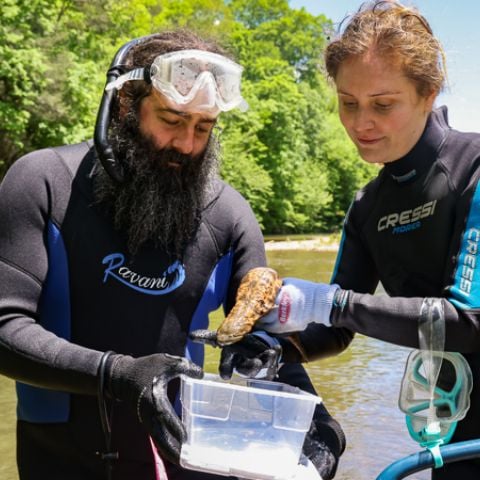

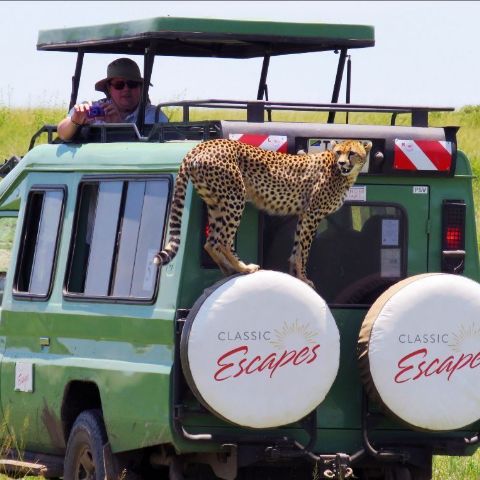
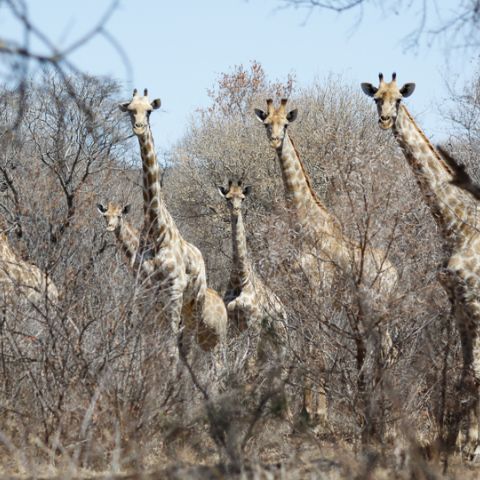
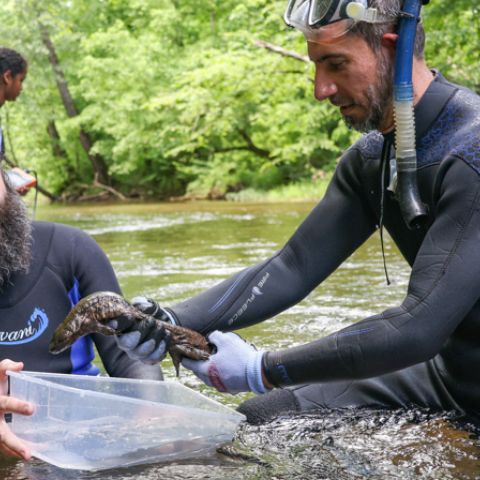
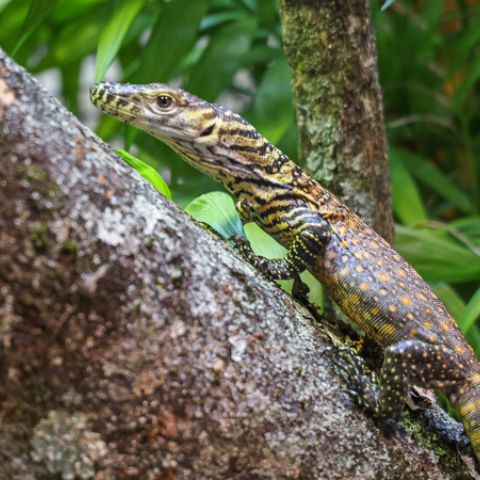
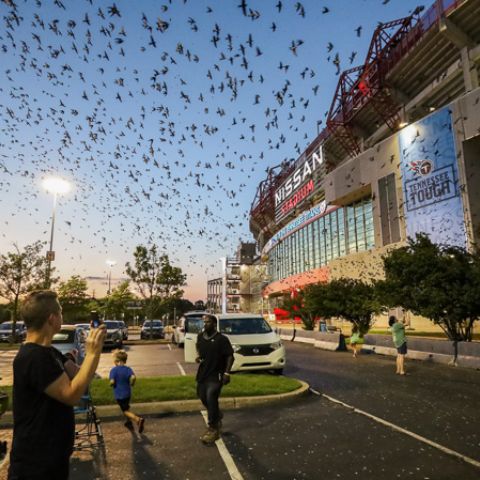
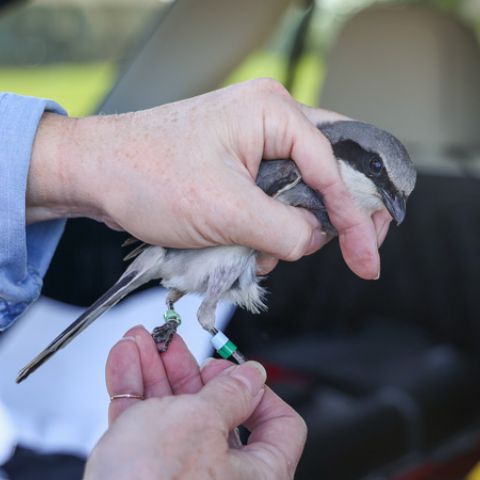
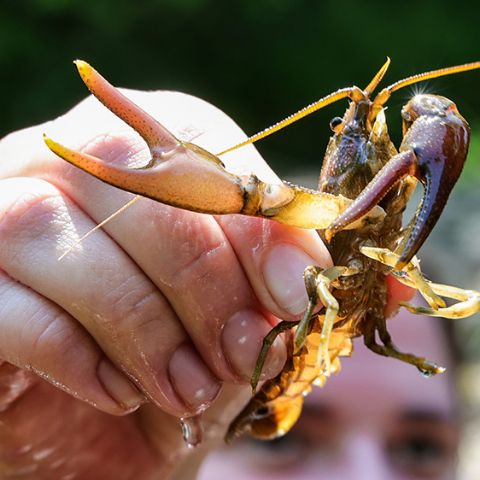
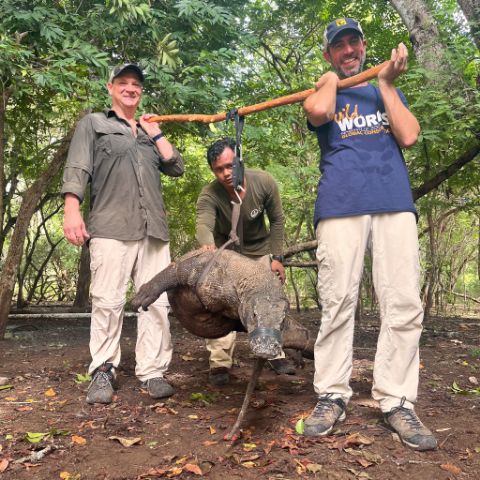
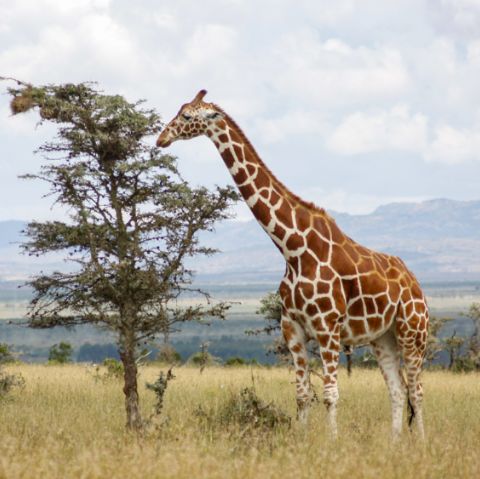
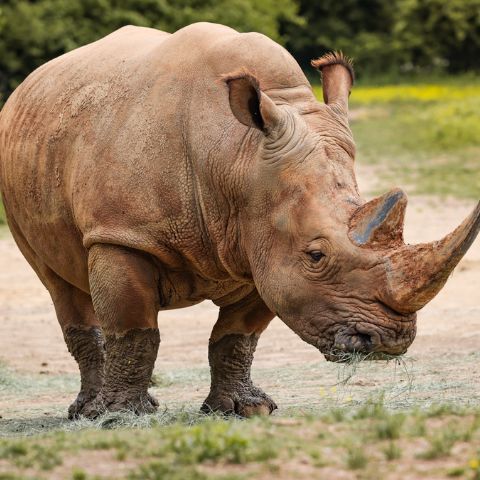
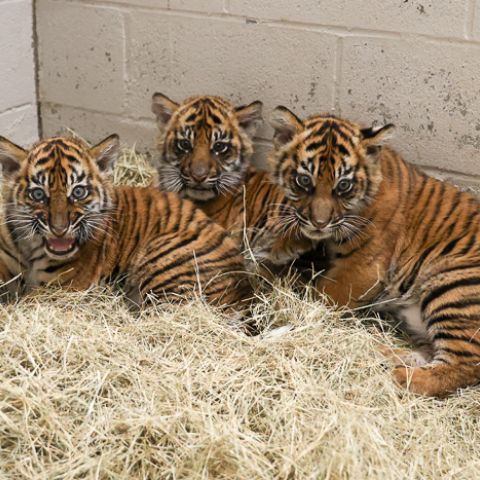
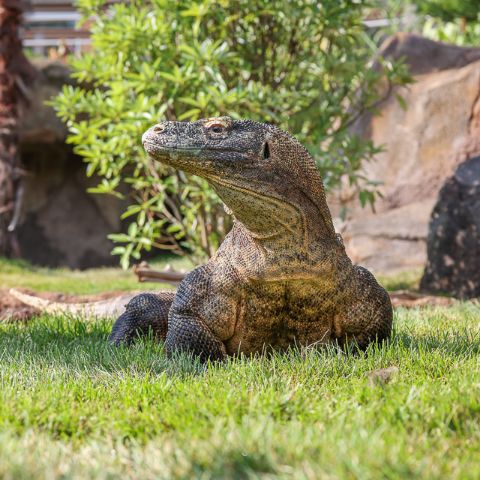
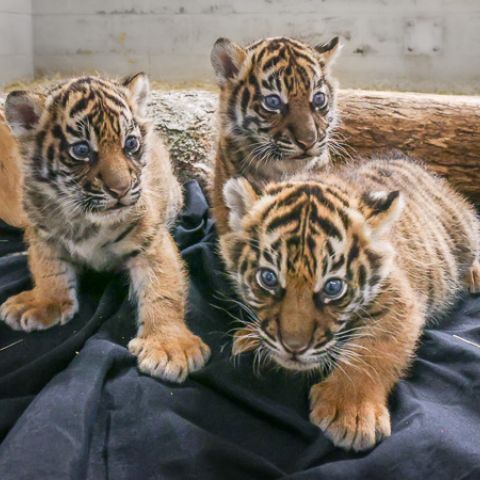
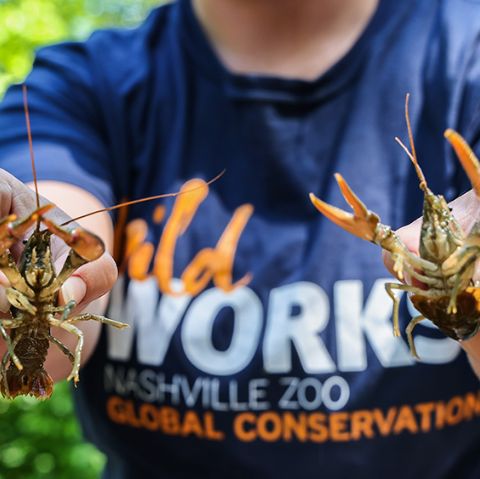
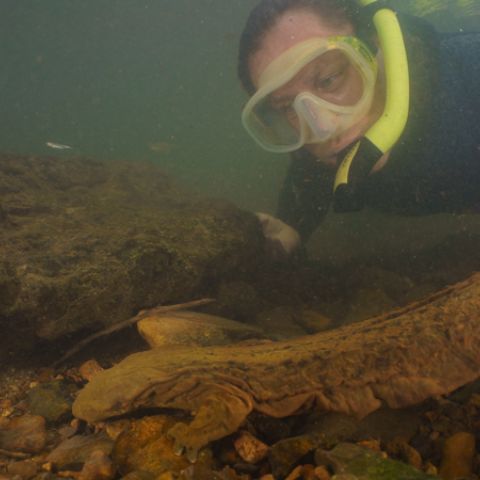
.jpg)
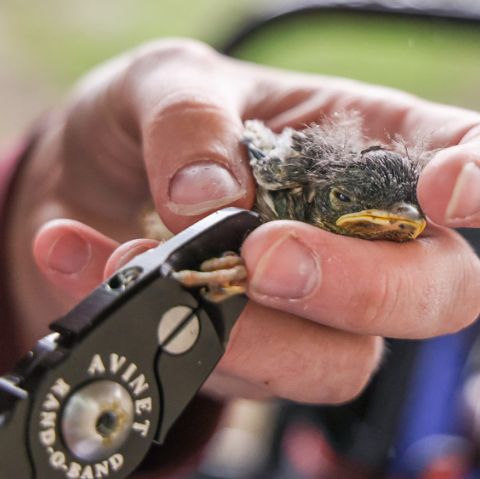
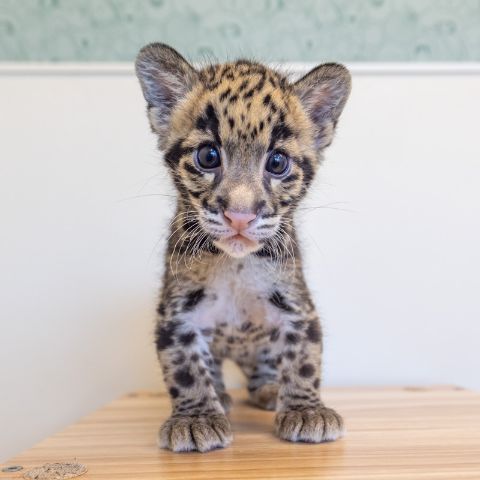
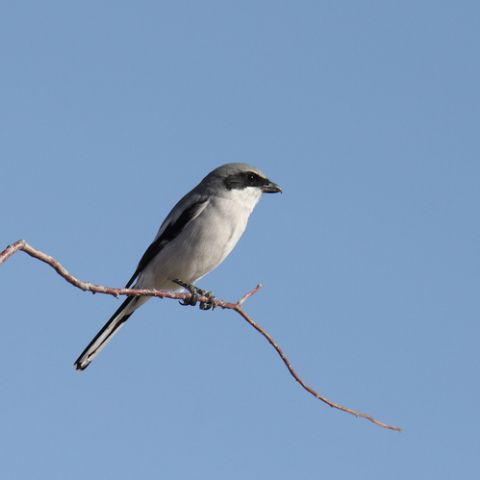
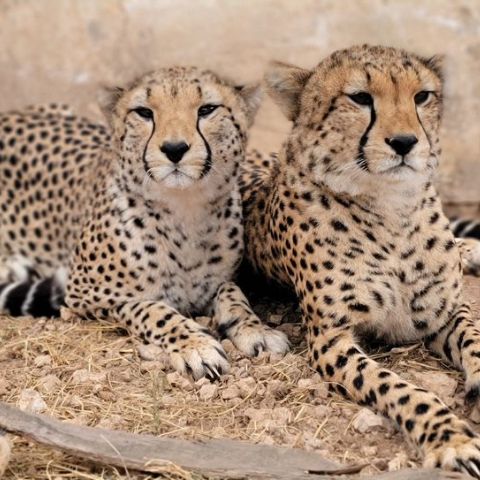
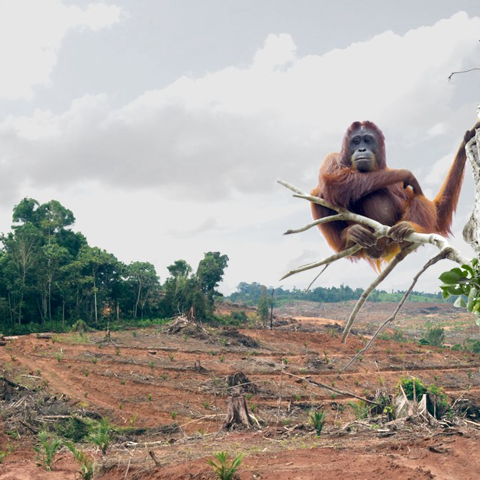
.jpg)
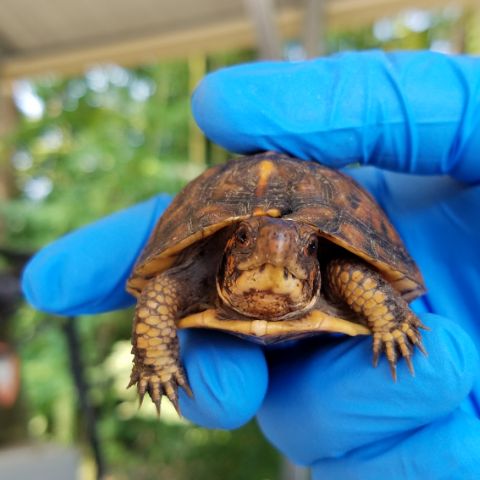
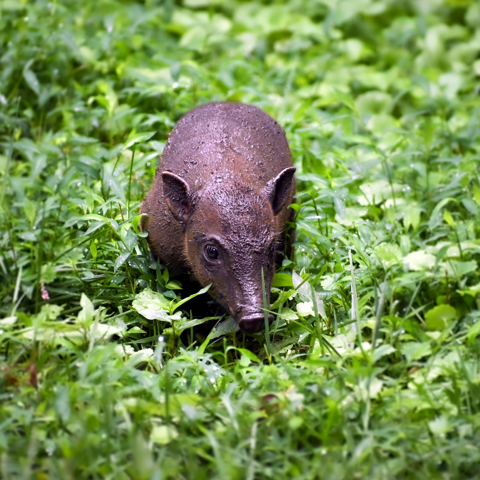
_-_web.png)
-_web.jpg)
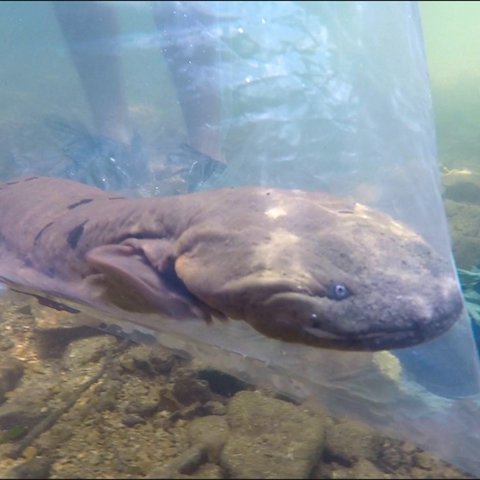
_-_web.jpg)
